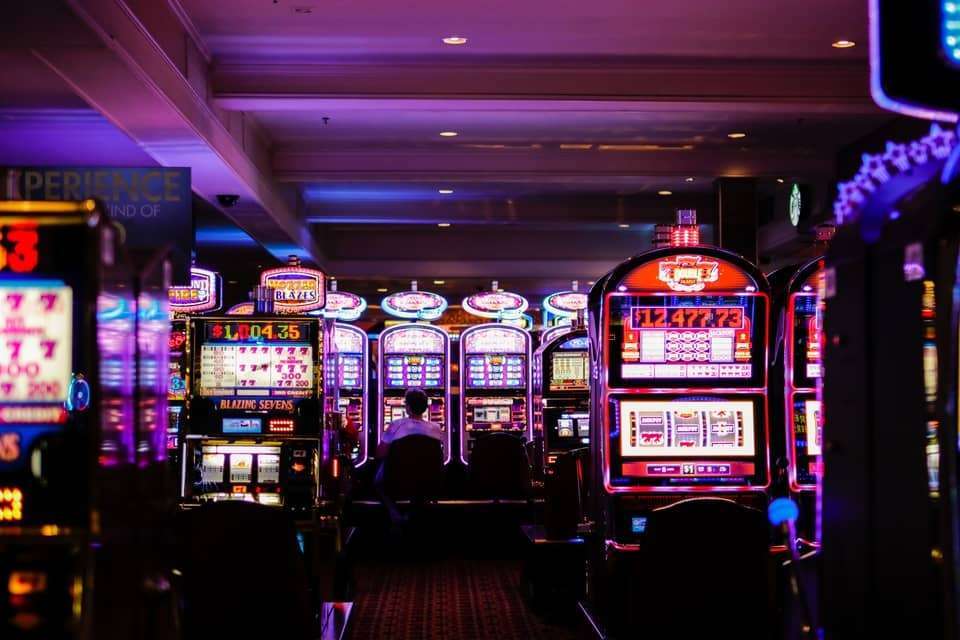Given the growing number of problem gamblers in the UK, the government, the NHS, and various charities have started to make gambling addiction a priority.
The alarming rate at which gambling addiction in the UK and related problems are escalating has forced authorities to take more serious action. Although problem gambling was determined to be a mental disorder in the 1980s, it wasn’t until 2013 that it was re-classified as an addiction.
Since then, there’s been a lot of progress made in terms of education, prevention, and treatment for problem gambling. However, considering the rapid rise and spread of the issue, it has clearly not been enough.
Rehab Costs & Options for Alcohol | Drugs | Other addictions
One of the newest concerns regarding gambling addiction is how strongly it is affecting children and young adults. In fact, the number of children with gambling problems has quadrupled in only 2 years.
Thus, UK authorities have taken a number of steps to address the issue including the creation of a three-year plan to tackle problems, opening up a young-adult gambling addiction service, and putting in place new rules and regulations. Perhaps with this new all-sided approach, we can finally see some good news in the coming years.
Gambling Issues in the UK: Where We Are Today
Gambling is not a new problem, especially in the UK. But with the increase in the number of betting shops and accessibility to online casinos, gambling is starting to affect more people’s lives negatively than ever before.
At the moment, the Gambling Commission estimates that there are 430,000 problem gamblers in the UK and 2 million people that are at risk. There could be even more, given that most people are not aware of their addictions.
The most money spent on gambling is through online casinos, followed by betting shops, and the national lottery. About 35% of at-risk gamblers use online platforms.
Unfortunately, very few people with a gambling disorder even attempt to seek help, and even fewer receive it. GambleAware reported 30,000 calls to their helpline in the last year, and less than 9,000 people who have actually obtained help. Compared to the numbers of people with a problem, this is disappointingly low.
Gambling Addiction is a Major Problem Among Young Adults
Gambling has always been the biggest issue among middle-aged adults. But now statistics are showing that children and young adults are becoming victims more than before. It is estimated that 450,000 young people engage in gambling activities in the UK, and more than 12% of them have a problem. It is said that the average age for a person to start gambling is 12 years old.
Fifty years ago, before betting shops, credit cards, and the internet came along, it was quite hard for anyone, especially young people, to indulge in heavy gambling. Few towns outside London had a casino or race tracks, and a few slot machines were the only gambling platforms available for most people.
To make use of these required a wallet full of cash. Certainly, there were few children who could do so.
Gambling in the UK made easier by the internet
In today’s digital age, any form of gambling is possible to any young person with a computer and a credit card (and mum or dad’s will do).
And thanks to advertising and social media, gambling is becoming normalised for children at a young age. Today, 70% of teenagers are seeing gambling-related ads on the internet, and among those aged 11-16, one in eight follow a gambling company on social media.
If you exclude the national lottery, participation in gambling-related activities is now the highest among young adults. This age group is also more likely to get involved in new forms of gambling, such as cryptocurrency trading.
Another factor behind these statistics is that many children come into gambling through computer gaming. Indeed certain popular games, such as Fortnite, include a simple form of gambling in some of their routines and activities.
Furthermore, there seems to be little regulation on underage gambling both online and in real life. For example, the majority of pubs do not regulate well who uses their betting machines. Age checks on online platforms and apps are also not very effective.
What’s Being Done About Gambling in the UK
In the last year, many steps have been taken to ease the gambling epidemic. However, recently, a lot more has been done in comparison to the previous years.
There’s A Plan
The NHS has officially named gambling as a key public health issue on their long-term plan, and the Gambling Commission has also just approved a new 3-year strategy. With the goal of alleviating the epidemic, the strategy will involve improving education, prevention, treatment accessibility, and adding restrictions.
Because education and awareness is crucial, there is hope that more attention will be brought to problem gambling after Public Health England releases a report. Expected in 2020, it is hoped that it will provide great insight into gambling’s effects on public health.
Improve Access to Treatment
Making treatment more accessible is also a large priority. GPs and other care providers need to understand gambling addiction and be able to refer patients to the right services. Furthermore, due to the large level of comorbidity, anyone being treated for gambling addiction should also be evaluated for other psychological problems.
Because of the rise in problem gambling among young adults, the NHS is expanding their National Problem Gambling Clinic to cater to those aged 13-25. The specialist service are first set to open in London, followed by Manchester, Leeds, Sunderland, and hopefully other cities later on.
Prevention Begins At Home
Though the government initiatives are laudable, they are mainly directed towards dealing with the fallout from the gambling epidemic, rather than its prevention. Much addictive behaviour develops from bad habits learnt at an early age, and in the case of gambling, this is particularly true.
The statistics for gambling among the young should sound the alarm in homes throughout the country. Parents need to establish ground rules for the use and monitoring of all digital activity from an early age. Young children need to understand that phone and laptop use is not general and universal but granted subject to established rules. For example, never in the bedroom, for short periods only, and without the use of a credit card. A very young child will likely accept and follow such a routine, but imposing it on a teenager will rarely work.
Most children today are more in danger of exposure to gambling and gambling opportunities than they are to opportunities to use drugs or alcohol. They need to be educated on the dangers of gambling addiction but the parents need this too.
If you suspect that someone you know is addicted to gambling, there are steps you can take to help them.
Cooperation is Key
It is said that gambling needs to be approached the same way that alcohol and smoking has been. Hence, there needs to be restrictions on advertising and sponsorship. Despite large revenue losses, betting companies seem to be cooperating. Already, some have agreed to no advertising during live sports (excluding horse-racing), no visible sponsorship on uniforms or field perimeters, and limiting or removing high-stakes games.
For example, there was a serious rise in gambling addiction due to fixed-odds betting terminals (FOBTs), where one could potentially lose £100 every 20 seconds. Now, companies are forced to lower their maximum bet to £2.
There are also plans to deal with online gambling, by improving age-checks or restricting access to such sites. For example, one idea is to ban the use of credit cards on all online platforms. Simon Stevens, the CEO of NHS England, is also in favour of implementing additional taxes on bookmakers, which can be used to fund addiction treatment.
Hopefully, with all these measures, we will see a lower number of problem gamblers in the future years.
Where to Get Help for Gambling Addiction in the UK
If you think that you, or a loved one, has a gambling addiction, you shouldn’t wait to ask for help. Common signs of gambling addiction include:
- Going into debt over gambling
- Unable to stop playing
- Chasing losses
- Lying about finances or gambling habits
- Gambling in secret
- Financial problems
- Missing work, school, or sleep to gamble
- Neglecting responsibilities
- Preoccupation with thoughts of gambling
- Making riskier bets
Gambling addiction should be treated the same way an alcohol or drug addiction would be. There are many people that attend residential rehab for gambling problems. Because of the risk of exposure to gambling platforms online and in real life, it can be helpful to live in a safe, temptation-free space while undergoing therapy.
It is not unusual for someone with a gambling addiction to have a secondary addiction or be diagnosed with an accompanying psychological problem. In fact, alcoholism and gambling have a high correlation. Depression, stress, and other mental health problems are all also linked to problem gambling. And gambling addiction has the highest rates of suicide compared to other dependency disorders.
In such cases, it isn’t clear at first which problem caused what. That is why it is important to have a thorough treatment programme that will address more than just gambling.
Of course, there are plenty of alternatives to inpatient treatment. Many people turn to Gamblers Anonymous for initial help. There are also other support services for problem gamblers which can be found on GamCare.
Gambling Addiction Treatment at Castle Craig
Castle Craig Hospital has experience with treating gambling addiction for over 30 years, along with alcohol, drug, and other behavioural addictions. We also offer help to those dealing with cryptocurrency addiction. Our unique treatment model, using 12-step model and therapy has helped thousands of patients get their lives back.
When treating gambling addiction, Castle Craig recognises that the disorder needs to be approached on all sides. It is important to understand why it happened and what needs to be done to change.
Therapy is a large part of treatment, but it is only one aspect at Castle Craig. We also a focus on rebuilding relationships, and the practical steps that should be taken by any compulsive gambler. These would include self-exclusion from casinos and online gambling sites, surrender of credit cards, limitation or stopping computer use.
Gambling addiction can have a devastating effect on the whole family, not just emotionally but in terms of monetary loss. The family home and/or savings can be lost in a single evening. Because of this, family therapy is emphasised and highly recommended.
We are always available to offer advice about addiction and treatment. If you would like to get in touch with us, contact us at +44 1721 788 104.


